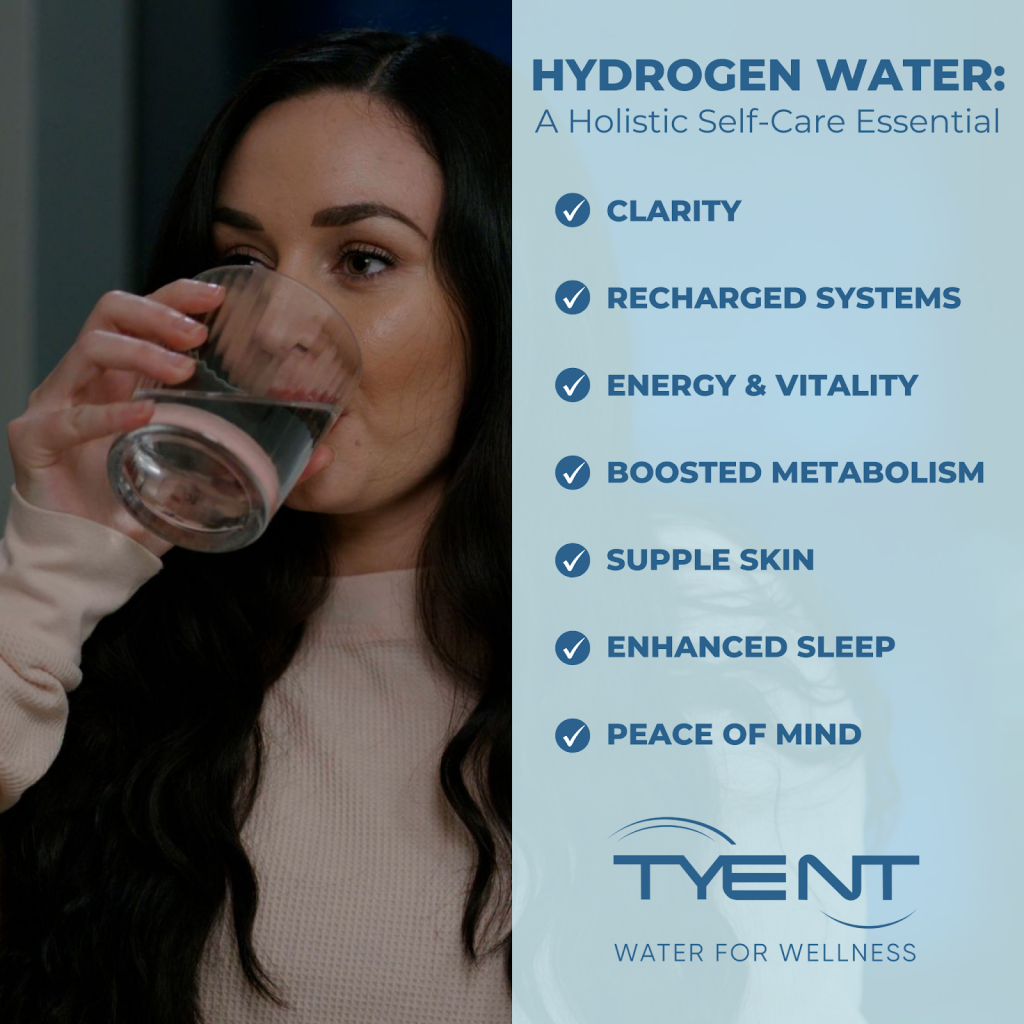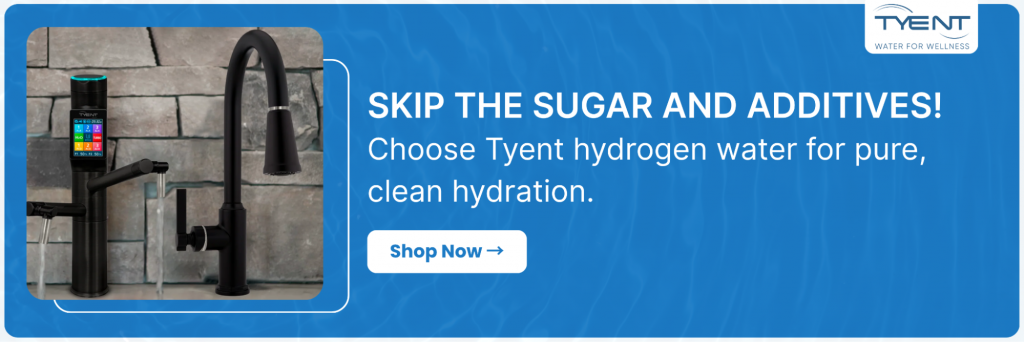Vitamin water often contains excess sugar, artificial additives, and unnecessary vitamins that strain the body. While marketed as healthy, they provide little benefit over whole foods. For safe, antioxidant-rich hydration, fresh hydrogen water from Tyent is a better alternative.
We know why you’re here, you’ve seen vitamin waters on shelves and wondered if they’re really as healthy as they claim. Let’s give you the facts upfront so you can decide for yourself:
- Most vitamin waters contain as much sugar as soda, raising risks of obesity and diabetes.
- Marketing creates a “health halo,” but the benefits are minimal compared to whole foods.
At Tyent, we deliver a smarter alternative: hydrogen water machines that transform clean tap water into fresh, antioxidant-rich hydration. With over 3,000 studies backing hydrogen water’s benefits, our systems provide purity, energy, and peace of mind, without the sugar, additives, or false promises of bottled vitamin water.
If you’re ready to see the deeper science behind why vitamin water isn’t the health boost they claim to be, and why Tyent hydrogen water offers something far more powerful, keep reading.
What’s Really Inside a Bottle of Vitamin Water?
Behind the vibrant labels and “fortified” claims, the content tells a different story:
- Sugar overload: Nutrition labels show that many vitamin waters contain a surprisingly high amount of sugar, similar to what you’d find in many soft drinks.
- Fructose strain: Unlike whole fruit, this form of sugar isn’t balanced by fiber or water, which may make it easier to overconsume and harder for the body to process.
- Artificial sweeteners: “Zero sugar” versions swap in synthetic sweeteners, which raise separate metabolic and gut health concerns.
It’s hydration with baggage, sugar, chemicals, and a false sense of health.
That’s why more people are choosing cleaner, simpler hydration options like Tyent hydrogen water systems. Instead of bottles filled with additives, Tyent delivers pure, filtered water infused with molecular hydrogen, right from your tap. No sugar, no artificial ingredients, just naturally fresh hydration that supports your body the way water should.
The Downsides You Shouldn’t Overlook
Vitamin water can do more harm than good when used daily:
- Metabolic stress: Regular consumption of sugary drinks contributes to obesity and type 2 diabetes.
- Dental damage: Acidity combined with sugar feeds tooth decay.
- Wasted money: You’re often paying premium prices for nutrients your body can easily get from everyday whole foods.
Instead of paying for sugar water with a “health halo,” Tyent hydrogen water systems offer a cleaner and more sustainable approach to hydration.
Every glass is freshly filtered and infused with pure molecular hydrogen, giving you crisp, refreshing water without additives, artificial ingredients, or unnecessary vitamins.
It’s hydration the way nature intended.
Why Hydrogen-Rich Water Outperforms Vitamin Water

The problem with bottled “health drinks” is that they try to add wellness back into water after it’s been stripped away. Tyent takes a different approach, restoring water to its purest, most beneficial form.
- Antioxidant power: Hydrogen infusion combats harmful free radicals at the cellular level.
- No sugar, no additives: Just clean, refreshing hydration.
- Advanced filtration: Our Ultra filters remove 200+ contaminants, including heavy metals and pharmaceuticals.
- Grounded in research: Backed by more than 3,000 scientific studies.
- Eco-friendly: Fresh at home, no plastic waste, no shipping bottles of sugar water.
Unlike vitamin water, our machines deliver something your body actually needs: clean hydration with measurable benefits.
The Smarter Hydration Choice Moving Forward
When we look at the science and the risks, vitamin water doesn’t stand up to its own marketing. The reality is clear: if you want superior hydration, you need water that truly supports your wellness.
That’s why we created Tyent hydrogen water ionizers, to deliver clean, safe, antioxidant-rich hydration at home, without the sugar, additives, or waste of bottled drinks.
Experience the difference for yourself. Shop Tyent water ionizers and discover how better water can help you feel more refreshed, energized, and confident every day.
At Tyent, we deliver something different: hydration powered by innovation, backed by research, and trusted by thousands of happy customers.






thanks for letting us know bout vit water. dont wanna drink that now.
Hi, Kim. We’re glad to hear that. We recommend choosing better options, like Tyent hydrogen-rich alkaline water.